Germany’s coalition of chaos
Dispute over gas-boiler ban threatens to unravel Germany’s three-party governing alliance
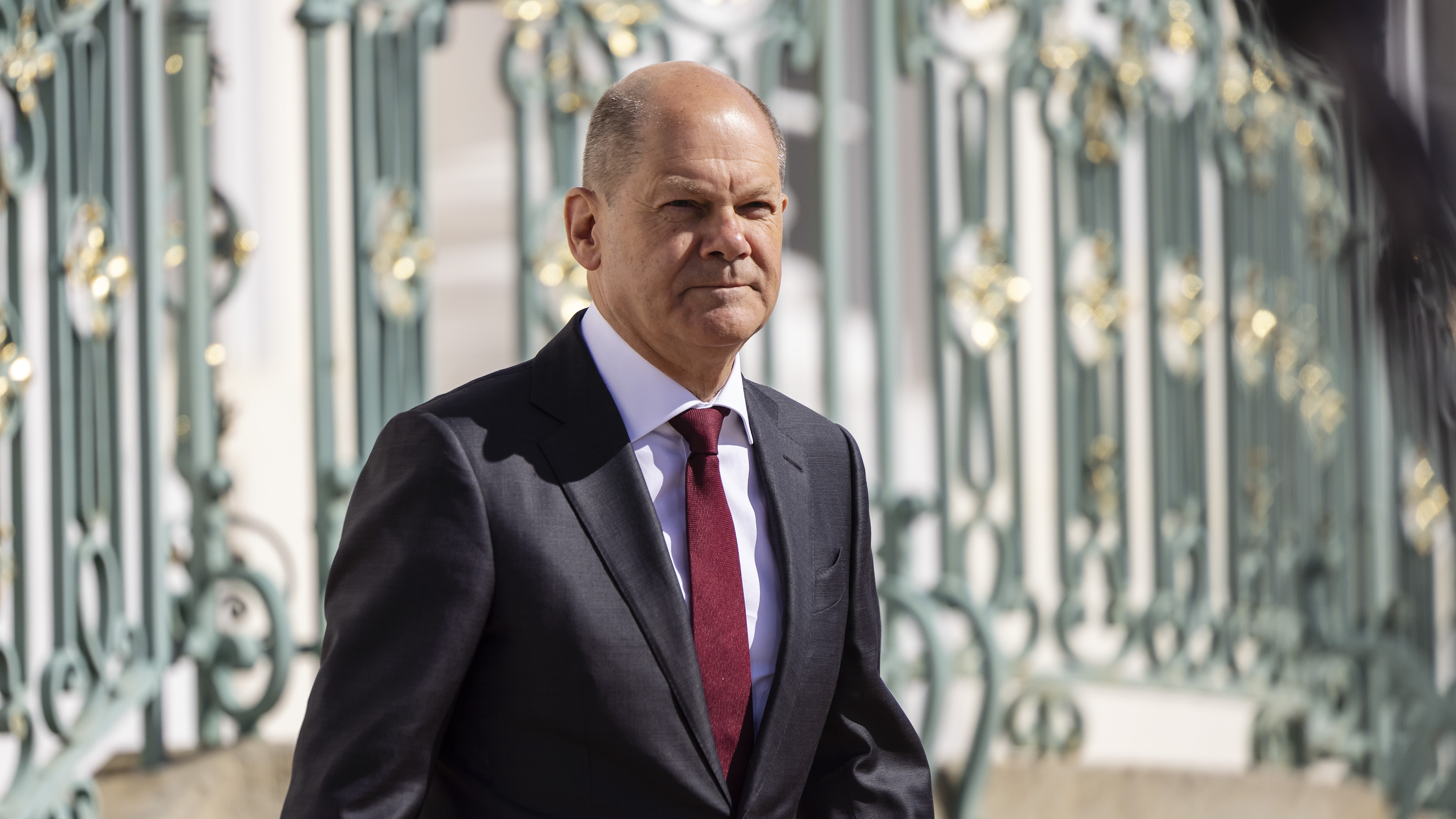
A free daily email with the biggest news stories of the day – and the best features from TheWeek.com
You are now subscribed
Your newsletter sign-up was successful
Relations between Germany’s ruling parties plunged to a new low yesterday after the liberals reneged on previously agreed climate legislation, testing the unity of the country’s coalition government.
Tensions flared after the Green party accused the liberal Free Democrats (FDP) of “breaking their word” on a bill to ban gas boilers in new houses from next year.
According to the Financial Times, a “clearly furious” Robert Habeck, the Green vice-chancellor and economy minister, said that the ruling parties had agreed to pass the law on boilers before the summer break.
The Week
Escape your echo chamber. Get the facts behind the news, plus analysis from multiple perspectives.

Sign up for The Week's Free Newsletters
From our morning news briefing to a weekly Good News Newsletter, get the best of The Week delivered directly to your inbox.
From our morning news briefing to a weekly Good News Newsletter, get the best of The Week delivered directly to your inbox.
The row between the two parties now “threatens to throw a spanner in the works of Scholz’s legislative agenda”, the FT said, as the Greens threatened to respond in kind by blocking legislation put up by the FDP.
What is the gas boiler problem?
The political situation in Germany is “heating up”, said Politico’s Brussels Playbook. To reach its climate goals, Berlin had been “planning a law that will effectively ban installing or replacing new gas or petroleum-powered heating in homes, and instead will make electrical heat pumps the norm”, the site explained.
In 2020, German buildings emitted 112 million tonnes of carbon dioxide equivalent. The goal is to achieve 67 million tonnes by 2030 to meet climate targets.
Experts say transitioning to renewable energy sources like heat pumps is crucial to achieving substantial emission reductions. However, the FDP reneging on its support of the Greens’ latest bill throws the country’s plan to go carbon-neutral by 2045 into jeopardy.
A free daily email with the biggest news stories of the day – and the best features from TheWeek.com
Are there deeper issues with the coalition?
Angela Merkel’s long reign as Germany’s chancellor was “always going to be a hard act to follow”, said The Economist.
But her “triumphant exit” is not the sole cause of the current government’s malaise. Germans had “dubbed the wobbly-looking coalition die Ampel, the traffic-light”, the magazine said, referring to the colours of its parties: red Social Democrats, yellow Free Democrats, and the Greens. “Yet it also hinted at mixed signals and policy jams.”
The FDP’s latest move comes after the party vowed to assert itself more strongly following a drubbing in a state election last October. The party received a paltry 5% of the vote in Lower Saxony, failing to meet the threshold to enter parliament.
At the time the “pro-business, fiscally hawkish” party, which had suffered a sequence of bad election results, “blamed in part its participation in the national administration”, Reuters said.
“The FDP’s voice must become more pronounced in this coalition,” General Secretary Bijan Djir-Sarai said after the Lower Saxony result. “We must prevent left-wing projects being implemented in this coalition.”
Experts say that the FDP’s options are somewhat limited. The party cannot afford to leave the coalition, said Frank Decker, a political scientist at the Rheinisch Friedrichs Wilhelms University in Bonn.
“If the FDP were to leave this coalition, it would go under at the next elections,” he said.
According to Philipp Koeker, a political scientist at the University of Hanover, the party would do better by asserting itself positively with policy initiatives of its own rather than just blocking those of their coalition partners.
What will happen next?
After the Greens’ bill was blocked yesterday, Friedrich Merz, the leader of the opposition Christian Democrats, spoke of a “lack of leadership and chaos in the [Social Democrat]-led government”.
Yet all is not lost for the “traffic-light” coalition, said The Economist. “Not only has the Ampel steered Europe’s richest, most populous country through a crisis as challenging as any that faced Mrs Merkel. It has also set Germany – so far gingerly rather than firmly, it is true – on a course towards potentially far-reaching reform,” the magazine said.
And far from showing a lack of leadership, as the opposition suggested, Scholz is proving surprisingly effective in leading a coalition composed of disparate parts, according to Jana Puglierin of the European Council on Foreign Relations think-tank.
“Scholz has the coalition quite well in his grip,” Puglierin told the Economist. “He’s made it clear that he is the one calling the shots.”
Arion McNicoll is a freelance writer at The Week Digital and was previously the UK website’s editor. He has also held senior editorial roles at CNN, The Times and The Sunday Times. Along with his writing work, he co-hosts “Today in History with The Retrospectors”, Rethink Audio’s flagship daily podcast, and is a regular panellist (and occasional stand-in host) on “The Week Unwrapped”. He is also a judge for The Publisher Podcast Awards.
-
 The Olympic timekeepers keeping the Games on track
The Olympic timekeepers keeping the Games on trackUnder the Radar Swiss watchmaking giant Omega has been at the finish line of every Olympic Games for nearly 100 years
-
 Will increasing tensions with Iran boil over into war?
Will increasing tensions with Iran boil over into war?Today’s Big Question President Donald Trump has recently been threatening the country
-
 Corruption: The spy sheikh and the president
Corruption: The spy sheikh and the presidentFeature Trump is at the center of another scandal
-
 Who is paying for Europe’s €90bn Ukraine loan?
Who is paying for Europe’s €90bn Ukraine loan?Today’s Big Question Kyiv secures crucial funding but the EU ‘blinked’ at the chance to strike a bold blow against Russia
-
 What difference will the 'historic' UK-Germany treaty make?
What difference will the 'historic' UK-Germany treaty make?Today's Big Question Europe's two biggest economies sign first treaty since WWII, underscoring 'triangle alliance' with France amid growing Russian threat and US distance
-
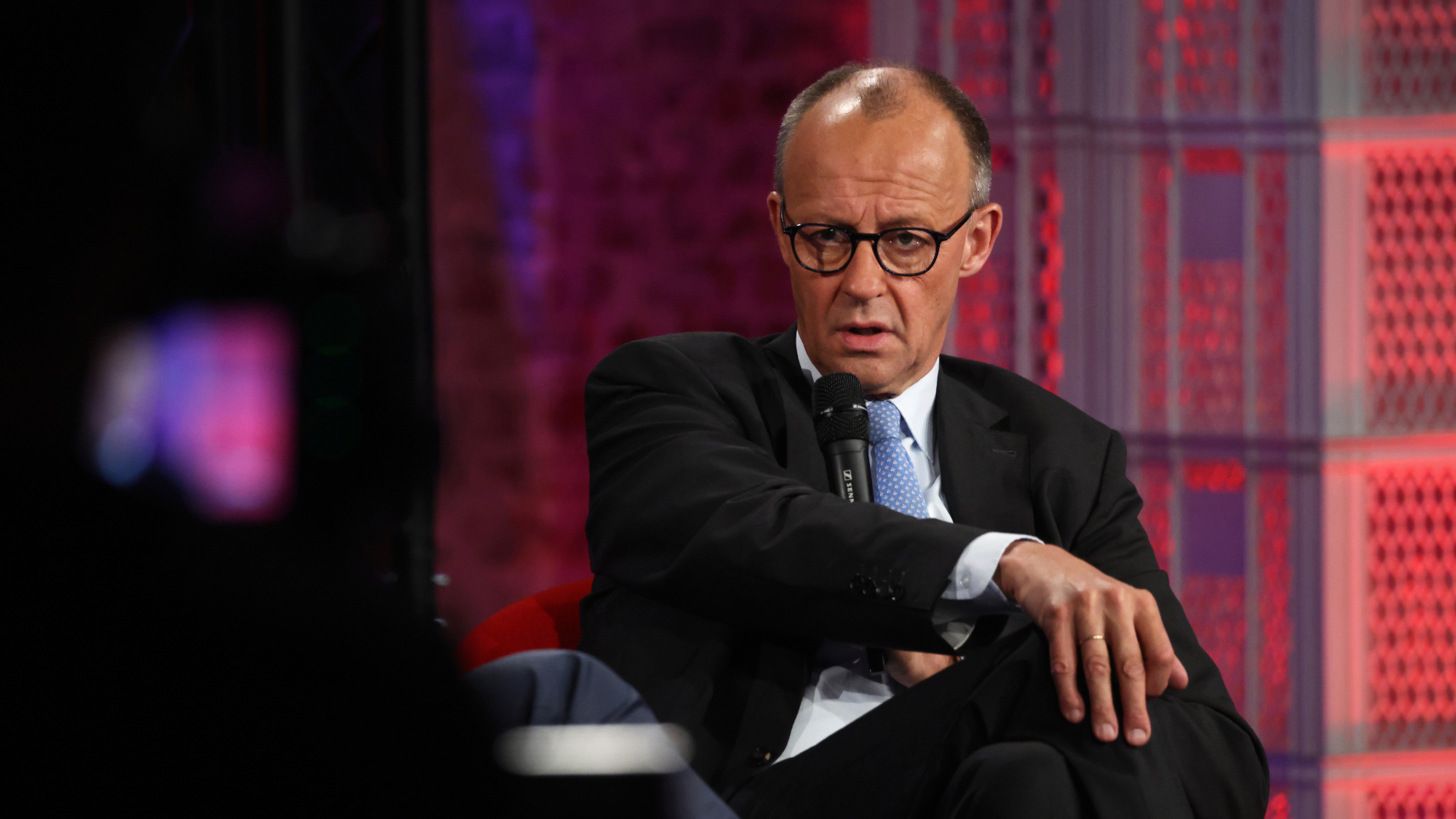 Germany lifts Kyiv missile limits as Trump, Putin spar
Germany lifts Kyiv missile limits as Trump, Putin sparspeed read Russia's biggest drone and missile attacks of the war prompted Trump to post that Putin 'has gone absolutely CRAZY!'
-
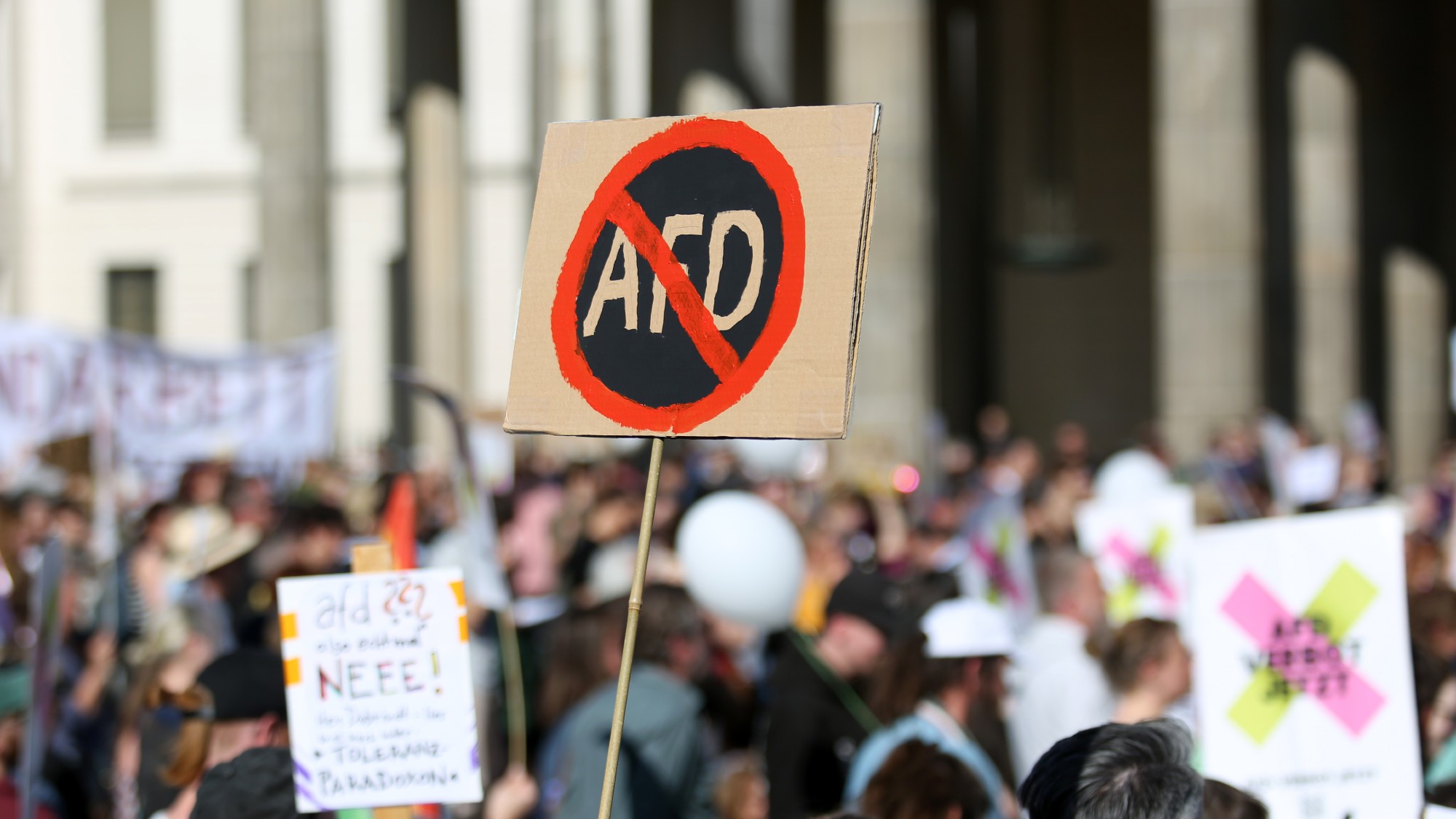 To ban or not to ban AfD? German democracy at a crossroads
To ban or not to ban AfD? German democracy at a crossroadsTalking Point Germany's domestic intelligence agency has officially designated the country's main opposition party a right-wing extremist group
-
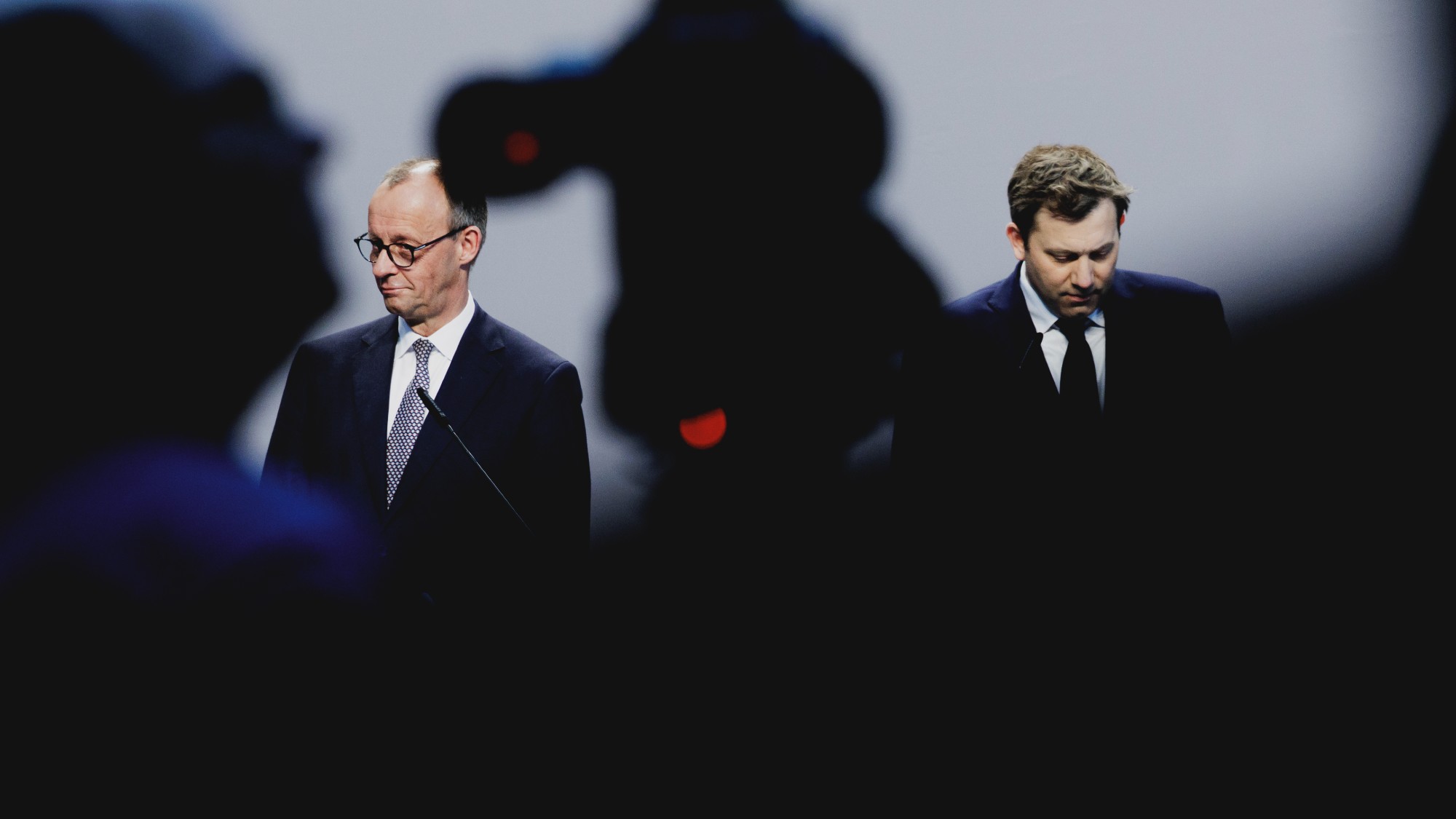 Merz's coalition deal: a 'betrayal' of Germany?
Merz's coalition deal: a 'betrayal' of Germany?Talking Point With liberalism, freedom and democracy under threat globally, it's a time for 'giants' – but this is a 'coalition of the timid'
-
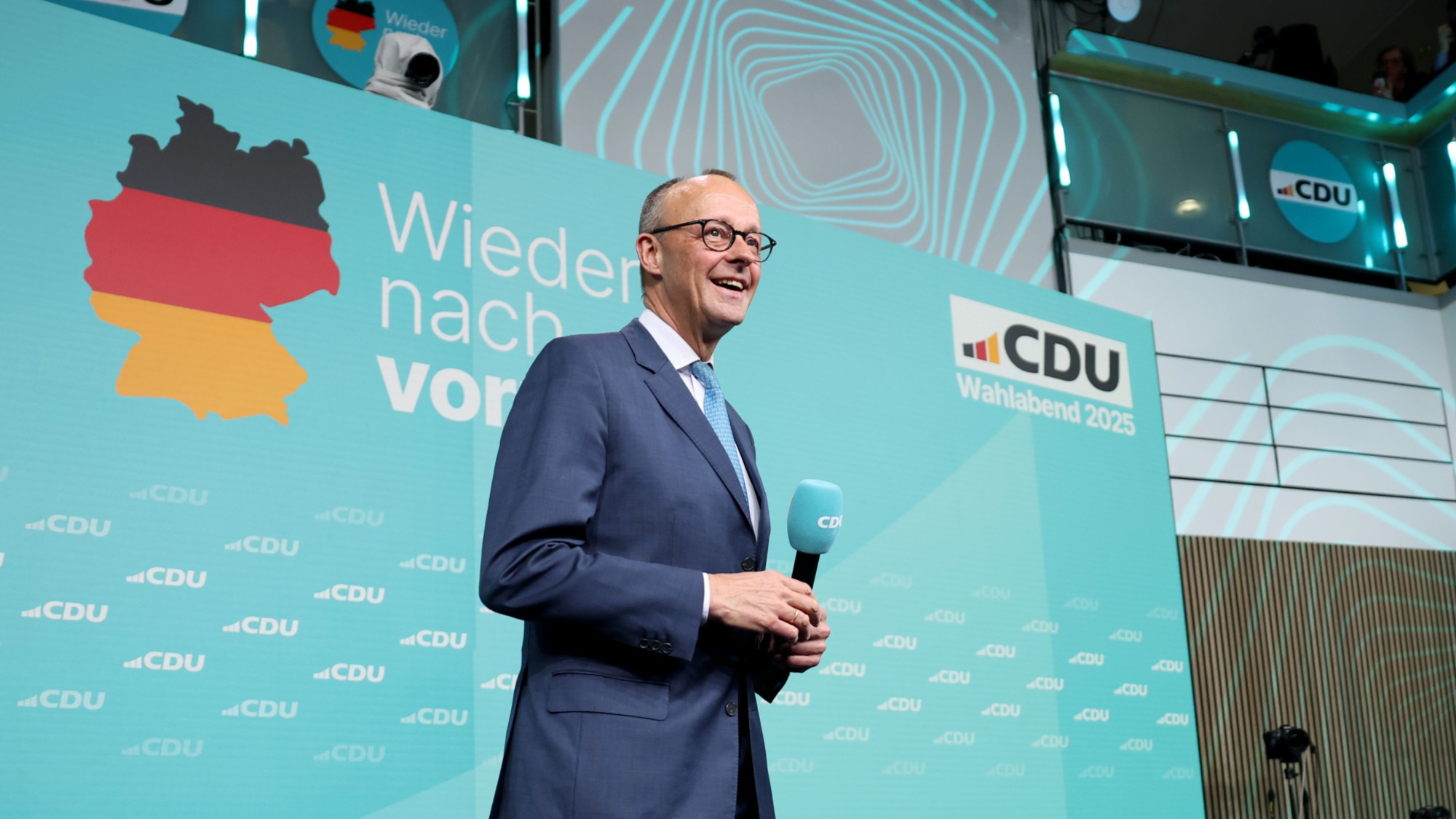 'The next German government enters a new, uncertain phase of history'
'The next German government enters a new, uncertain phase of history'Instant Opinion Opinion, comment and editorials of the day
-
 'It also means the start of a virtuous ecological cycle'
'It also means the start of a virtuous ecological cycle'Instant Opinion Opinion, comment and editorials of the day
-
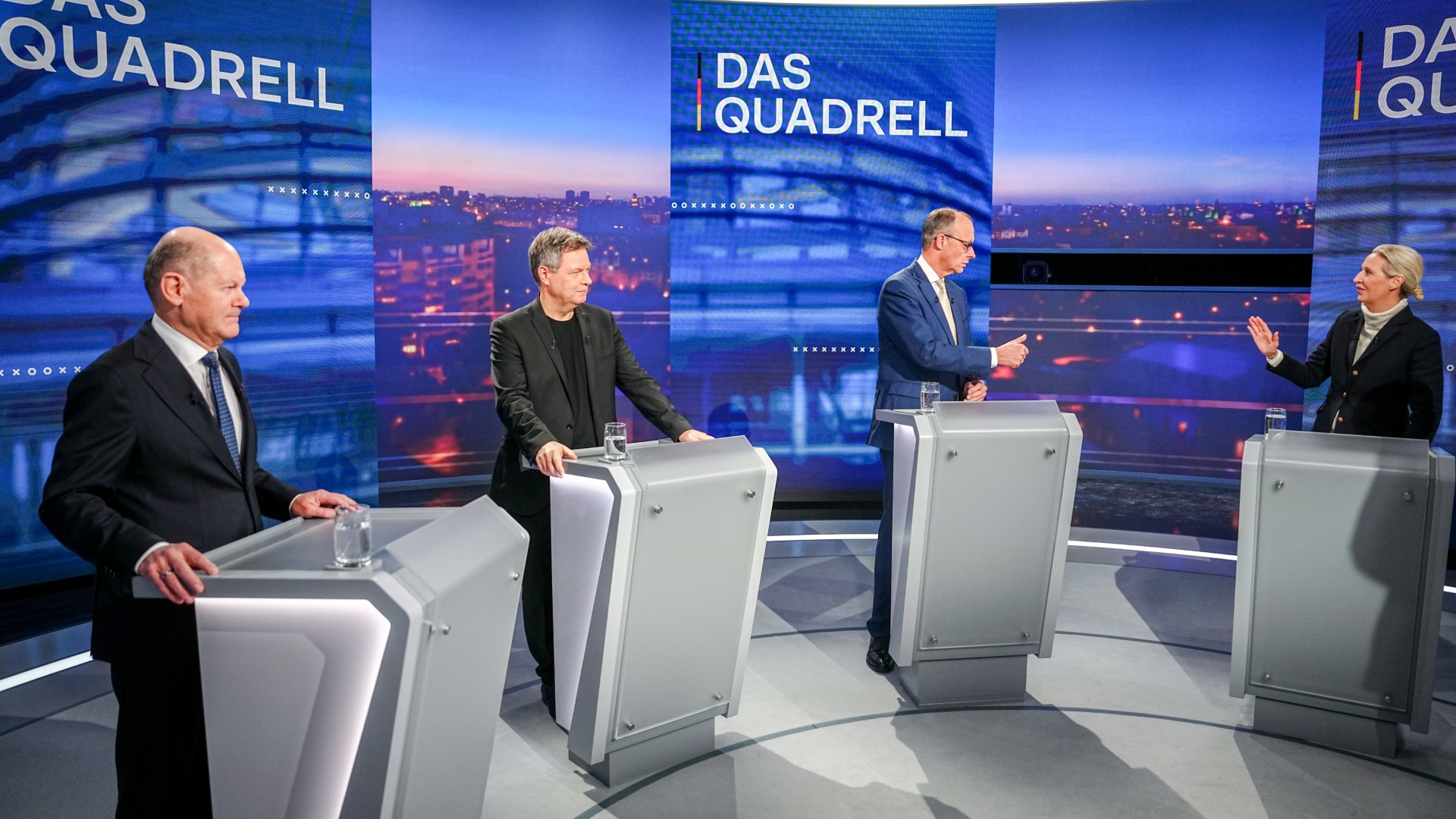 Germany's elections: from dull to high drama
Germany's elections: from dull to high dramaThe Explainer Surge of far-right AfD threatens to upend mainstream coalition politics